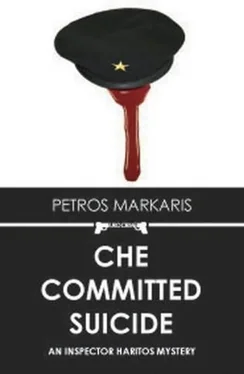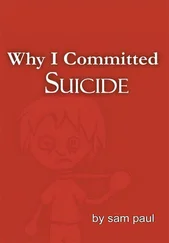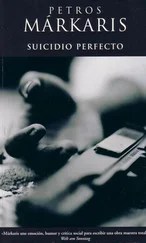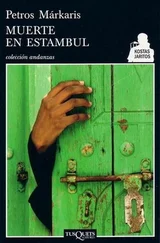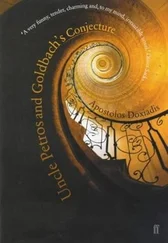‘From my father,’ she said laughing. ‘My father is unbelievably egoistical and opinionated. But if you’re willing to bear with him, he becomes putty in your hands.’
‘Yes, and you did exactly the same thing with my wife. In less than a week you became inseparable.’
‘Well, that was easy. After all, we have a common interest in cooking.’
I still had a question eating away at me and even though it was a little out of place, I had to ask it or I wouldn’t rest. ‘What I don’t understand, Koula, is why, since you’re such a sharp girl, you give an entirely different picture in the office.’
She turned and stared at me with a wry smile. ‘What picture exactly?’
‘How shall I put it… that you’re a more simple girl.’
She burst into laughter. ‘Simple, Inspector Haritos? A simpleton is what you’re trying to say!’
‘That’s going too far, but why are you like that? Is it Ghikas?’
She suddenly became serious. ‘It’s because I want to get married and have children, Inspector.’
‘What’s that got to do with it?’
‘A lot. In my circles, whether personal and professional ones, when men see a smart woman, they take to their heels. If I want to play the smart type, I’ll end up on the shelf. Men prefer the certainty of a simple girl so they can put their minds at rest.’ She paused and then continued. ‘You shouldn’t judge by your own daughter. She went to university, is doing a doctorate and has a doctor for a boyfriend. I have nothing of all that.’
‘How do you know about my daughter?’ I asked astonished.
‘Mrs Haritos told me the other day while we were making the baked aubergines.’
No doubt she also told her of her regret that Katerina didn’t know how to cook. ‘Don’t make it sound so tragic, there’s Aristopoulos,’ I said to tease her.
‘All Aristopoulos wants is to get me into bed,’ she said very calmly. ‘He’s desperate to make it as a company executive; he’s not about to get involved with a woman cop. If I say no to him a couple of times, he won’t call me a third time. And if I go with him a couple of times, he’ll disappear and the only way I’ll see him will be to arrest him.’ She smiled at me again. ‘There’s nothing you can say. I’ve looked at it from every angle.’
‘And are you going to spend the rest of your life playing the fool?’
‘Of course not!’ she said indignantly. ‘Once I’ve got a ring on my finger things will change!’
I turned and looked at her. I suddenly saw Adriani before me. At last I understood why the two of them got on so well together.
The heavens opened just as we were passing the old people’s home. We were in the underpass and above us we could hear a deafening noise. In less than two minutes from the start of the downpour, the roads in Athens had become jammed and the honking of horns began. We emerged from the underpass after about twenty minutes only to be attacked by a blast of rain that forced the Mirafiori to retreat. The windscreen wipers did their best but to no avail because the rain had created something like a blanket of mist and it was impossible to see further than three yards in front of you.
I decided to take Koula home first and then go to see Sotiropoulos because I couldn’t very well leave her to wait for the bus in all that rain. After all, Sotiropoulos would most likely arrive late too. On the way, I congratulated myself for not getting rid of the Mirafiori. It’s high off the ground like all the old cars and the water can’t touch it. The newer models are closer to the ground and are more like floating barges every time the roads of Athens turn into torrential rivers.
I dropped Koula off in Gyzi and went back up Kifissias Avenue to meet Sotiropoulos at the Flocafé. The rain continued to fall heavily but not with the same intensity. The parking lot behind the Flocafé was full. The attendant looked scornfully at the Mirafiori and obviously thought it an insult to have to find a place for it. He relented half-heartedly when I showed him my badge and told him I was on duty.
Sotiropoulos arrived half an hour later. He went around on a Harley Davidson and was drenched to the bone.
‘Time you woke up to the twenty-first century, old boy,’ he said indignantly. ‘Whoever heard of the Head of the Homicide Division not having a mobile phone?’
‘What would I use it for? So that the intended victim could call me to tell me he was about to be murdered?’
‘No, but so I could call you and cancel our meeting because of the rain.’
He hung his jacket over the back of the chair to dry and ordered a double whisky to warm himself up a little.
‘I watched your programme last night. I liked it.’
He turned to me and gave me an ironic look. ‘Really? From what I remember, I usually get on your nerves.’
‘Last night, you got on the others’ nerves and I thoroughly enjoyed it.’
He burst out laughing and took a gulp at his whisky. ‘That’s why I called you,’ he said, ‘because of the programme.’
I saw in his eyes that he was about to deliver a bombshell.
‘Do you remember that at one point the conversation turned to how well Favieros and Stefanakos knew each other?’
‘Yes, I remember.’
‘At exactly eleven, the programme was interrupted for a short news bulletin and adverts. Andreadis, one of the two opposition politicians, turned and said to the Minister: “How could they not have been on close terms given that they were doing business together?”’
As soon as I heard that, I knew my trip had been worth it despite the rain and the traffic. It was the first time I had had some indication that Favieros and Stefanakos were not just acquaintances or friends, but that they were actually involved in some business together. I didn’t know whether I should be glad or start to worry because now the situation might begin to get more complicated. I left the apportioning of gladness and worry for later and I asked Sotiropoulos:
‘Who was Stefanakos married to?’
‘Lilian Stathatos, have you heard of her?’ The name meant something to me but I couldn’t recall who she was. ‘She’s the daughter of Argyris Stathatos.’
As soon as I heard the father’s name, I remembered her straightaway. Argyris Stathatos had received favourable treatment from the Junta. He had managed to secure various permits, some legal, some illegal, in order to make himself into the leading hotel owner in Athens and the islands. He raked in money during the years of the Junta, but his hotels were built with interest-free loans and when the Junta fell, the banks began calling in the loans and Stathatos lost everything.
‘Is he still alive?’ I asked puzzled.
Sotiropoulos laughed. ‘God rest his soul! He died about ten years ago. At the height of his power, when he held sway during the Junta, his daughter was studying economics in London and presented herself as a revolutionary, against the Junta. She had cut off all relations with her father and told everyone she was studying with the little money that her grandmother had left her. You can believe it or not, anyhow the truth is that she lived very conservatively. When she returned to Greece, she started work as an executive in an advertising company and she and her father were eventually reconciled. Her father’s creditors didn’t want to have him put in prison because while he was still on the outside they had hopes of getting some of their money back by blackmailing him. On seeing her father’s demise, Lilian Stathatos understood that businesses requiring investment are a double-edged sword and you never know what might crop up. She was quick to foresee the future of TV ads and she set up her own company. It was at that time that she married Stefanakos, who was an up-and-coming young politician. She was very smart and quickly realised that the European Union had plenty of rich pickings for anyone who had their wits about them. And she was one of the first to open a consultancy bureau for European investment.’
Читать дальше
